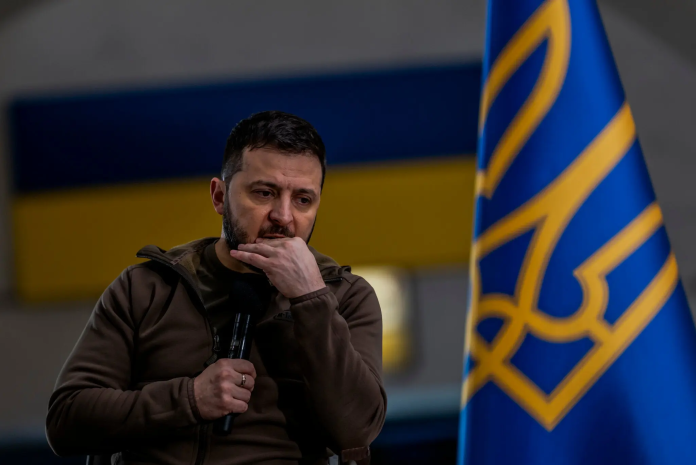While Ukrainian President Volodymyr Zelensky is cancelling a “peace summit” in November and foreign allies are reporting their inability to attend the meeting, Ukrainian media report a surge in desertions among mobilised soldiers.
An adviser to the head of Zelensky’s office, Daria Zarivna, said that the second “peace summit” on Ukraine in November had been cancelled, saying that it would be held later. At the moment, thematic conferences on each point of the “peace formula” were being conducted, with the discussions leading to the adoption of a communiqué, she stated.
Diplomatic collapse
With the cancellation of a peace summit where Russia was expected to be invited, proposals for a “just peace” and the creation of a platform for resolving the crisis in Ukraine are becoming less and less feasible.
On Tuesday, US President Joe Biden cancelled his upcoming trip to Germany and Angola, dealing a blow to plans for a summit meeting of the Ramstein Group of Arms Donors for Ukraine. The summit was intended to emphasise unshaken support for Kyiv.
However, the White House stated that Biden postponed the trip to address Hurricane Milton preparations and Hurricane Helene relief efforts.
I just don’t think I can be out of the country at this time.
Zelensky has for weeks emphasised the importance of the Ramstein meeting for Ukraine and the future course of the war. In his Tuesday evening video speech, Zelensky did not mention the meeting or Biden’s statement that he would not attend. US Secretary of State Antony Blinken reportedly also declined to travel to the summit.
Earlier, Reuters reported that Zelensky saw a chance for an end to the military conflict “in October, November and December.” The Ukrainian president said at the Southeast Europe-Ukraine summit in Croatia that “the situation on the battlefield creates an opportunity to make this choice – the choice of decisive action to end the war no later than 2025.”
Zelensky’s “victory plan” is also unfeasible due to the fact that its first point is the country’s accession to NATO. Kyiv’s ambitions have reportedly led Russia to launch military action in 2022. However, the objectives of Ukraine’s incursion into Russia’s Kursk region in August this year are still unclear. The Kursk gamble also led to the Armed Forces of Ukraine (AFU) losing key defence positions in the Donetsk region.
Mass fleeing
A “battalion” of deserters leaved the army every 24 hours, Ukrainian media reported citing AFU officials. Since the beginning of 2022, the Ukrainian prosecutor’s office filed about 86,000 criminal cases against mobilised Ukrainian soldiers.
Ukrainian journalists reported that before Zelensky’s Kursk gamble, the criminal cases were 63,200, indicating an increase of 22,800 deserters. On average, the AFU lost about 380 men per day, which amounted to a battalion, military experts said.
Against the backdrop of grim prospects at the Ukrainian front, MPs argue that the mobilisation age should be lowered in order to replenish the thinning army. However, critics emphasise that the data provided on deserters is official, whereas unofficially there may be many more desertions.
Ukrainian media reported the detention of a military officer who defiantly deserted from the frontline. A soldier of the 56th brigade, Serhiy Gnezdilov, left his position on 21 September, announcing this on social media. He wanted to draw public attention to the problem of service time for the mobilised. However, Ukrainian investigators qualified his actions as desertion, according to local media.
